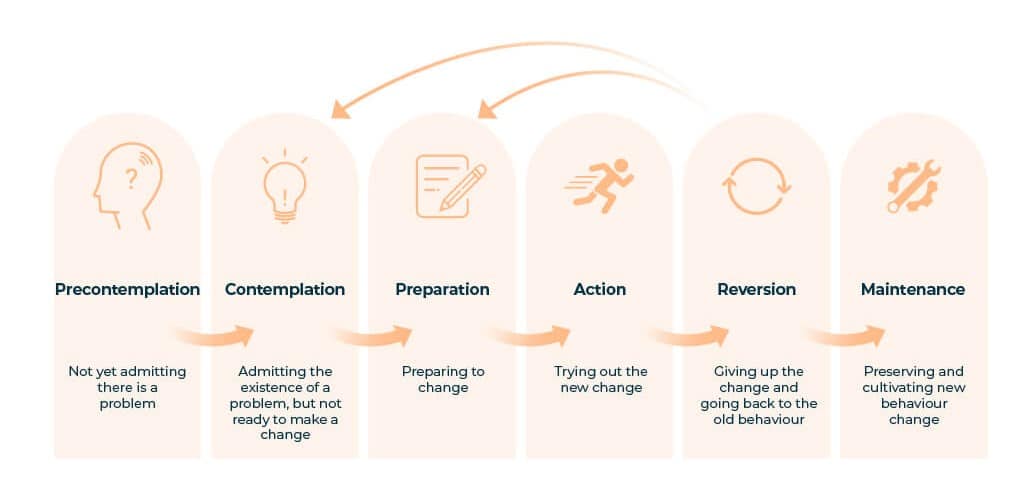Introduction
Sustainability is not just about new technologies and green infrastructure—it’s also about changing how people behave. Long-term environmental solutions require us to understand the psychology behind why people make unsustainable choices and how to plan environments and policies that foster sustainable behavior. This is where environmental psychology plays a vital role.
Read More- What is Sustainability?
What is Environmental Behavior?
According to Gifford (2007), environmental behavior is often habitual and context-driven rather than purely rational or information-based. Even when individuals care about the environment, barriers such as convenience, cost, or lack of support often prevent them from acting sustainably. Therefore, sustainable planning must remove these barriers while reinforcing positive actions.

Transtheoretic Model for Sustainable Behavior
Strategic Planning Approaches
Some strategic planning approaches include-
Sustainable Urban Design- Designing communities with integrated green spaces, pedestrian zones, and public transport encourages environmentally responsible daily behavior. For example, cities with better walkability see reduced reliance on personal vehicles, thus lowering emissions (Kaplan & Kaplan, 1989).
Environmental Nudging– Nudging involves subtle design features that guide people toward better decisions without restricting freedom. Placing recycling bins in convenient locations or using green footprints leading to the compost station are effective behavioral cues (Thaler & Sunstein, 2008).
Policy Interventions and Economic Tools- Governments can influence behavior through taxes on carbon-heavy products, incentives for renewable energy adoption, and strict regulations on pollution. These policies create both push and pull effects—discouraging harmful behavior while rewarding eco-friendly choices.
Educational Outreach and Awareness Campaigns- Targeted education efforts—such as school curricula on environmental topics or public awareness through social media—empower individuals with knowledge and a sense of responsibility (Clayton, 2012). Campaigns must also address emotional and cultural aspects of environmental engagement.
Role of Environmental Psychology
Environmental psychologists work at the intersection of behavior and place, exploring how physical and social environments affect decision-making. Gifford (2010) notes that creating sustainable behavior is not about preaching—it’s about designing systems that make green behavior easy, attractive, and normative.

Barriers to Sustainable Behavior
Conclusion
Achieving environmental sustainability depends on more than laws and innovations—it requires the intentional shaping of human behavior. By planning environments and communities that support green choices, we can promote lasting change. Interdisciplinary collaboration between urban planners, psychologists, policymakers, and educators is essential for this vision.
References
Gifford, R. (2007). Environmental Psychology: Principles and Practice. Optimal Books.
Gifford, R., Kormos, C., & McIntyre, A. (2010). Behavioral dimensions of climate change. Journal of Social Issues, 66(3), 527–543.
Kaplan, R., & Kaplan, S. (1989). The Experience of Nature: A Psychological Perspective. Cambridge University Press.
Thaler, R. H., & Sunstein, C. R. (2008). Nudge: Improving Decisions About Health, Wealth, and Happiness. Yale University Press.
Clayton, S. (Ed.). (2012). The Oxford Handbook of Environmental and Conservation Psychology. Oxford University Press.
Niwlikar, B. A. (2025, April 25). Sustainability: 4 Important Ways to Plan and Modify Behaviour for It. Careershodh. https://www.careershodh.com/plan-and-modify-behaviour-for-a-sustainability/
